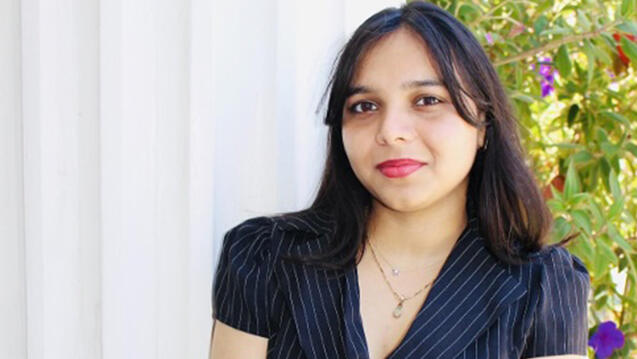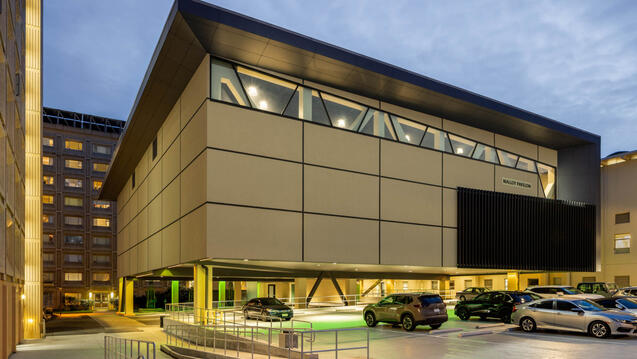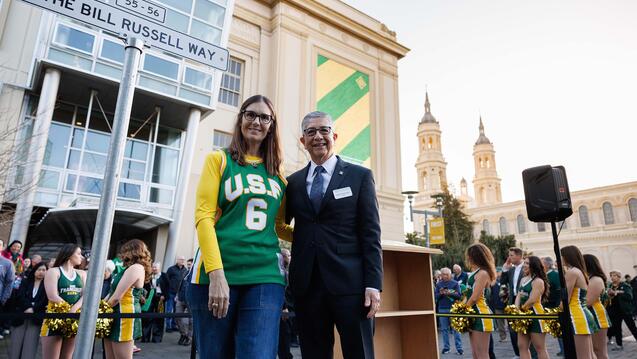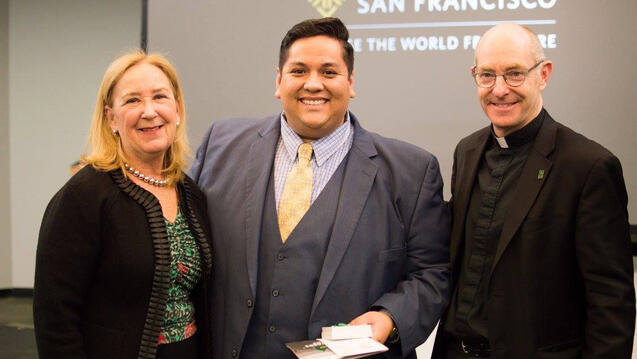
USF Latiné/x Community Reaches New Heights
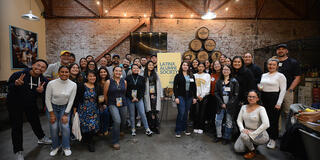
Since the late 1980s, the Latinx Alumni Society (LAS) has connected generations of USF graduates through culture, community, and celebration.
Today, LAS has more than 15 active board members serving a community of over 9,000 living Latiné/x alumni.
Its members gather for networking and mentorship but also for lively social and cultural events — from a reggaeton dance class to margarita-making workshops to outings at local eateries such as Flores, Nopalito, and alumni-founded Spark Social.
This fall, 33 percent of USF’s incoming students identify as Latiné/x. LAS now plays an especially meaningful role: supporting the largest incoming class of Latiné/x-identifying students in university history.
This milestone is especially meaningful to alumni who remember different times. Antonio Ortiz ’96, a volunteer at a recent Latiné/x Community Welcome, recalls the 1990s, when representation was slim and the Latiné/x student population averaged just 6.5 percent.
Guiding the work of LAS are the society’s new co-chairs, Claudia Flores MS ’15 and Joaquin Razo ’15. Both bring personal experiences of finding community at USF and a commitment to ensuring that today’s students feel the same sense of belonging.
Flores, a first-generation Mexican American who earned her master’s degree from USF’s School of Nursing and Health Professions, remembers first stepping onto the USF campus and experiencing a welcoming community — feeling like she was home. As co-chair, Flores aims to bring that same duty of belonging to her role.
She joins Razo, who describes himself as “Jesuit raised” after attending Jesuit schools and working in a Jesuit parish. Together, they lead a growing community of Latiné/x alumni who commit to celebrating culture, supporting USF students, and creating deep connections beyond graduation.

Creating Community for Students
For Razo, the work of LAS is about visibility and support. “Being part of the Latinx Alumni Society has enriched our connection to the university through the opportunity to see and support Latiné/x students,” he said. “It shows us that the university wants to do something to support them. By asking us what they need, we are also supporting their families.”
He sees alumni as playing an important role in ensuring that current students know that they belong. “Alumni can support today’s Latine/x
students by making sure we are providing an environment where they feel safe to identify as Latiné/x, so they have a community to go to,” he said. “Whether it’s NetworkUSF, LAS, or other alumni — we will show up at Welcome Day and at graduation to ask, ‘What do you need?’”
Building Structure and Celebrating Identity
Flores brings the perspective of someone who once sought community as a first-generation student. “Coming from a Mexican American family, there were things I needed help with, and now I can help provide that for others,” she said. “Students are no longer talking in a void — they can see the other side of it.”
She sees LAS as a place where alumni can help create structure, provide resources, and strengthen networks for students and graduates alike. Her vision aligns with the university’s Jesuit mission of fostering the whole person: “It’s taxing to tone down your Mexicanness or tone down who you are. It’s important to celebrate ourselves and the community — it enriches us.”
September’s Hispanic Heritage Month underscores that belief. “It is 100 percent important to celebrate who you are,” Flores said. “USF is uniquely positioned to give students this space. Giving each other that space is key to being successful in life.”
All members of the USF community are invited to learn more about the University of San Francisco's LatinX Alumni Society and NetworkUSF and get involved.
